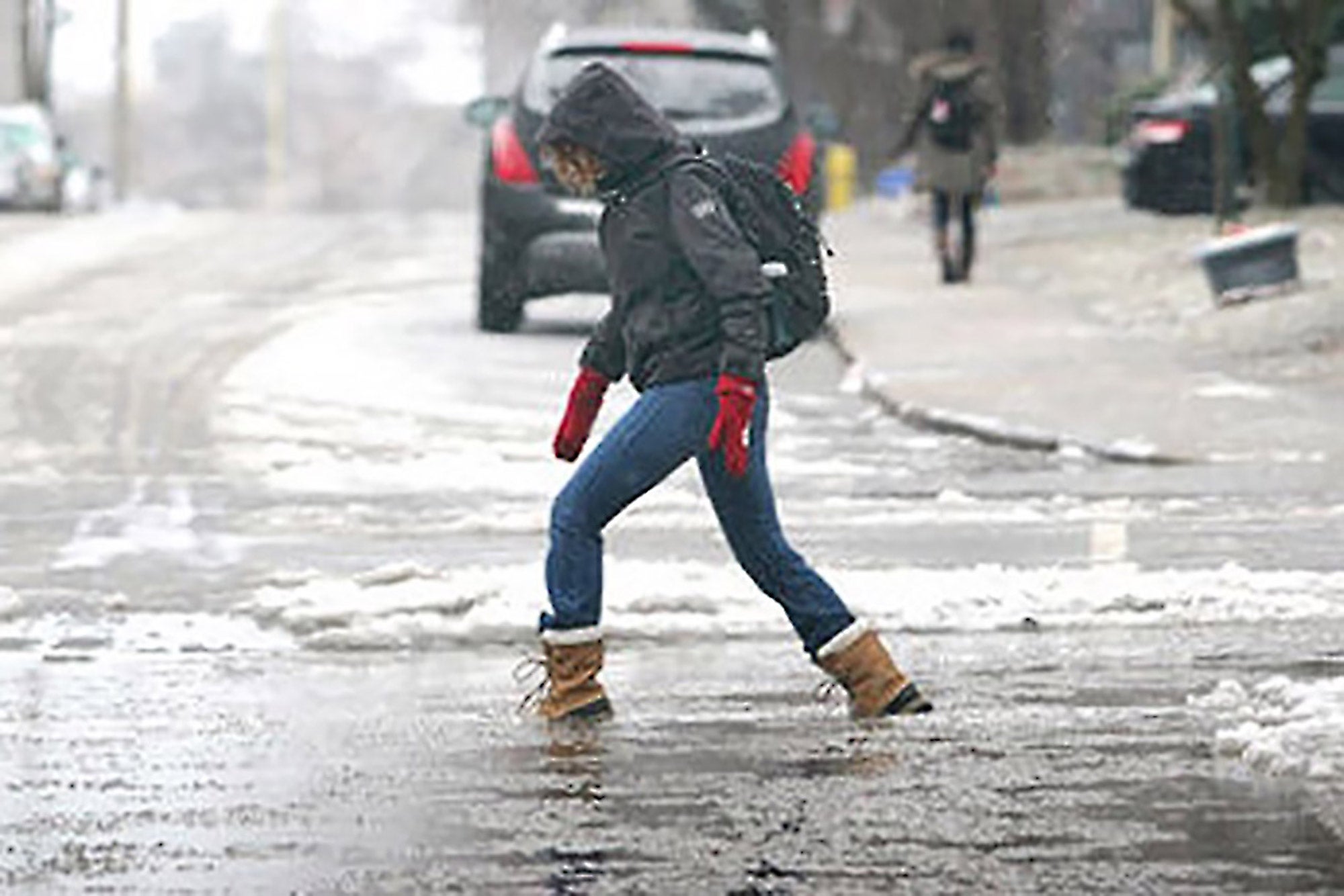Winter Weather = Bad Mood? It's More Complicated Than That. Bad weather's effect on our behavior is complex and often contradictory.
By Laura Entis
Opinions expressed by Entrepreneur contributors are their own.

With a deep freeze taking over much of the U.S., bad weather is the talk of the nation. Turn on the TV, and you'll find a lineup of weathermen and women gravely forecasting more snowstorms and colder temperatures.
Between the cancelled flights, cold feet, wet coats and gray skies, it's easy to why many people feel that bad weather detracts from their overall happiness. But while waking up to a chilly, soggy morning may very well dampen your mood, the relationship between behavior and weather is complex. And gloomy weather, it turns out, has some unexpected benefits.
We're more productive when it's nasty outside.
Unpleasant weather is thought to improve concentration and productivity, in part because a rainy day or snowy day kills the potential for leisure time outdoors; if we aren't distracted by the sunny possibilities outside our window, we're free to focus on the task at hand.
Related: Baby, It's Cold Outside, But Your Customers Will Return
Two recent studies back up this theory. In 2008, researchers found that on rainy days men stayed at work half an hour longer, on average, than they did on comparatively sunny days. And a study of Japanese bank workers from 2012 found that bad weather increased workers' productivity (in general, they were more efficient at completing assigned tasks in a loan-application). Bad weather boosted productivity, the authors speculate, because it reduced the potential for cognitive distractions resulting from good weather.
Bad weather makes us better decision makers.
Unpleasant weather can cause temporary gloominess that, in turn, can trigger an automatic increase how much attention we pay to the outside world. Recall may actually be sharper in bad weather, because we aren't complacent - instead, we're paying attention to our surroundings in an effort to change and improve our mood; new external information that we may gloss over on a sunny day is therefore processed and registered.
Related: 3 Apps to Prepare Your Startup for Extreme Weather
Previous research backs this up. A 1994 study found that pleasant weather can lead to lapses in thoughtfulness. Researchers approached 122 undergraduates, asking them to participate in a survey about comprehensive exams for graduating students. The more pleasant the weather, the easier it was to get the students to agree with faulty arguments. Cold and rainy days, however, boosted students' critical thinking.
Some of us don't mind the winter.
While the many of us react negatively to the cold and the overcast, we don't all respond this way. In a recent study on how weather affects mood in Emotion, a small percentage of Dutch participants were labeled Summer Haters (their mood worsened with warmer and sunnier weather). And, almost as surprisingly, nearly half of the participants' moods were unchanged by sun or rain.
Related: 6 Scents That Can Transform Your Mood and Productivity
Our reactions to weather, the authors speculate, are far more complex than a simple comparison between overcast/rainy days and clear/sunny ones can illustrate. A number of factors (including humidity, temperature, wind, and barometric pressure) also need to be taken into account if we want an accurate interpretation of our emotional response to the weather. In addition, we all react in a slightly different fashion: responding positively to the sun and warmth and negatively to the snow and cold is the cultural norm, but a percentage of us may not react this way at all.
Stormy skies have no effect on life-satisfaction.
The weather may affect our mood (which is a temporary, constantly evolving state). But according to a recent study in the Journal of Personality and Social Psychology, it has no effect on overall life-satisfaction. Over the course of five years, researchers asked over 1 million Americans from all 50 states the question: 'In general, how satisfied are you with your life?' They then collected U.S. weather data over that same period to see if good or bad weather affected participants' responses. Rain, cloud cover, humidity, temperature, wind speed, you name it -- weather had no impact on reported life-satisfaction.
So while cold, snowy weather may have the ability to temporarily darken your mood, it doesn't have the power to affect your overall, long-term well-being. It's a nice thought to keep in mind when you wake up to another sunless morning, or your flight is cancelled (yet again) because of unruly winter storms.
Related: Crocodile Tears? Crocs Blames Earning Drop on the Weather











